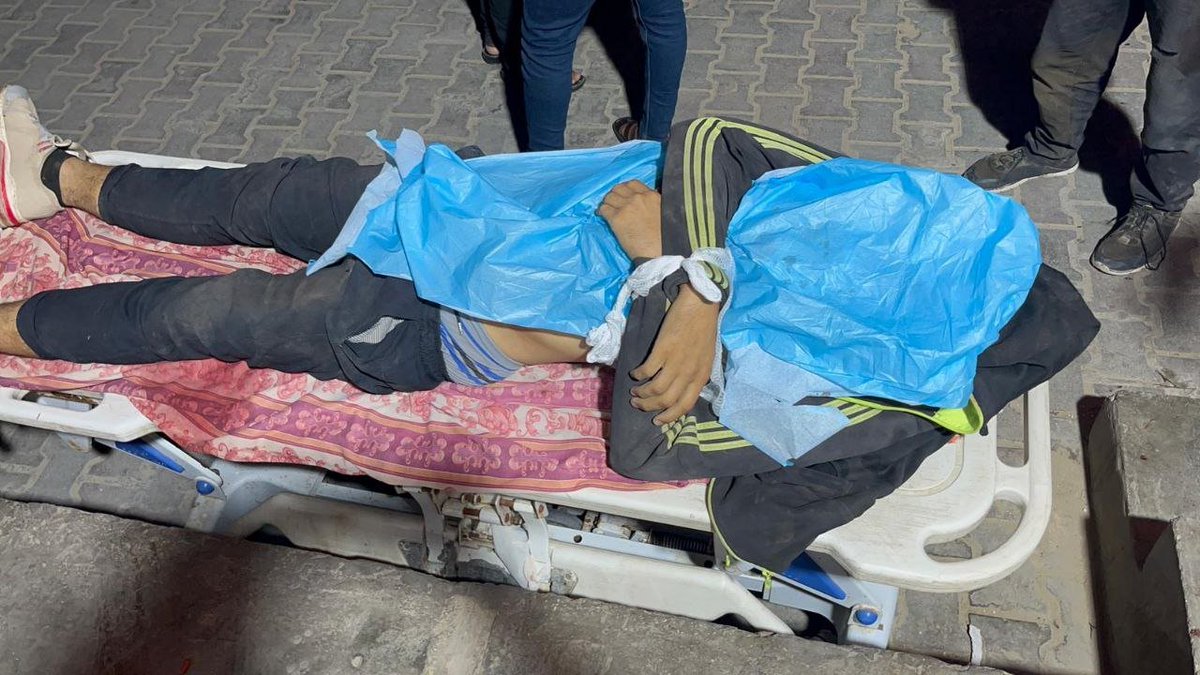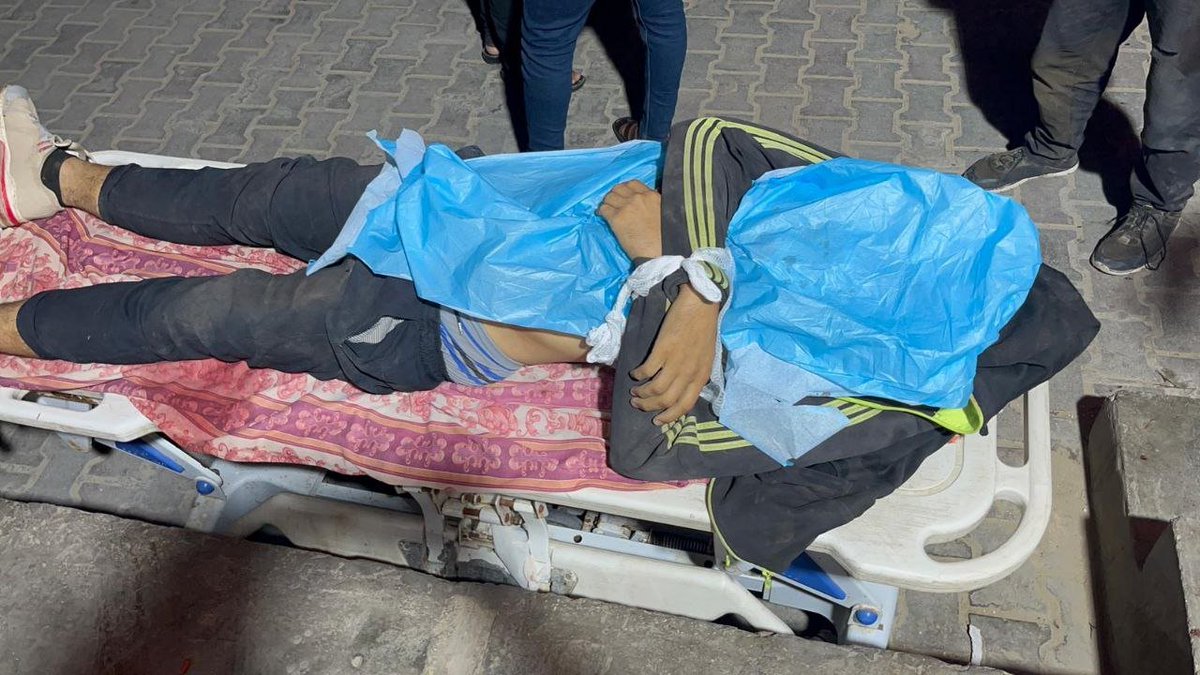24-Year-Old Palestinian Shot Dead While Seeking Food Aid
Tragic Incident in Gaza: The death of Murad Musleh
In a distressing event that underscores the ongoing humanitarian crisis in Gaza, a 24-year-old Palestinian named Murad Musleh lost his life due to gunfire from Israeli occupation forces. This tragic incident occurred while Musleh was attempting to secure food aid outside a U.S.-run food distribution center in central Gaza on the night of June 25, 2025. His death has sparked outrage and renewed discussions about the dire conditions faced by many Palestinians in the region.
The Context of the Incident
The situation in Gaza has been marked by prolonged conflict and significant humanitarian challenges. The region has faced repeated military actions, blockades, and a lack of essential resources, leading to a severe shortage of food, medicine, and other critical supplies. As a result, many residents, including young adults like Musleh, have been forced to seek assistance from food distribution centers. These centers are essential lifelines for countless families struggling to survive.
The Eyewitness Accounts
Eyewitnesses reported that Musleh was part of a crowd gathered outside the food distribution center, where many were desperately waiting for aid. The chaotic atmosphere, fueled by desperation and the need for basic sustenance, turned tragic when gunfire erupted. It is unclear what initiated the shooting, but the consequences were devastating. Musleh’s death not only represents a personal tragedy for his family and friends but also reflects the broader humanitarian crisis in Gaza.
The Reaction from the International Community
The news of Musleh’s death has drawn attention from various human rights organizations and activists who are calling for accountability and an end to the violence in the region. The incident has reignited debates about the Israeli-Palestinian conflict, highlighting the urgent need for international intervention and support for humanitarian efforts in Gaza. Many are urging the global community to take a stronger stance against the ongoing violence and to prioritize the protection of civilians caught in the conflict.
- YOU MAY ALSO LIKE TO WATCH THIS TRENDING STORY ON YOUTUBE. Waverly Hills Hospital's Horror Story: The Most Haunted Room 502
The Humanitarian Crisis in Gaza
The situation in Gaza is dire, with a majority of the population relying on humanitarian aid to meet their basic needs. The blockade imposed by Israel, compounded by internal political strife, has resulted in high unemployment rates, limited access to healthcare, and a deteriorating infrastructure. Food insecurity is rampant, with many families unable to afford basic necessities. The tragic death of Murad Musleh serves as a stark reminder of the human cost of this ongoing conflict.
Calls for Change
In response to this and similar incidents, there have been calls from various factions within Palestinian society and the international community for an end to hostilities and a renewed focus on peace negotiations. Activists emphasize the need for dialogue and understanding to address the root causes of the conflict, advocating for a solution that respects the rights and dignity of all individuals involved.
The Importance of Awareness and Advocacy
Raising awareness about the humanitarian situation in Gaza is crucial. The tragic story of Murad Musleh is just one of many that highlight the urgent need for international attention and action. Advocacy groups are working tirelessly to bring these issues to light, seeking to inform the public and pressure governments to respond appropriately. Social media platforms have become vital tools for sharing information and mobilizing support for those affected by the conflict.
Conclusion
The death of Murad Musleh is a heartbreaking reminder of the ongoing struggles faced by Palestinians in Gaza. As the international community grapples with the complexities of the Israeli-Palestinian conflict, it is essential to prioritize humanitarian efforts and work towards a peaceful resolution that ensures the safety and well-being of all individuals in the region. Awareness and advocacy play a critical role in this process, and it is imperative that the voices of those impacted by this tragedy are heard and acknowledged. The need for change is urgent, and it is only through collective action that a brighter future can be envisioned for the people of Gaza.

Murad Musleh, a 24-year-old Palestinian, was shot and killed last night by Israeli occupation forces while desperately seeking food aid outside the U.S.-run food distribution center in central Gaza. pic.twitter.com/8lKGx7BHe4
— Quds News Network (@QudsNen) June 25, 2025
Murad Musleh, a 24-year-old Palestinian, was shot and killed last night by Israeli occupation forces while desperately seeking food aid outside the U.S.-run food distribution center in central Gaza. pic.twitter.com/8lKGx7BHe4
— Quds News Network (@QudsNen) June 25, 2025
Understanding the Tragic Loss of Murad Musleh
Imagine being just 24 years old, full of dreams and aspirations, yet finding yourself in a desperate situation where you’re seeking food aid. This is the heartbreaking reality that Murad Musleh faced when he was tragically shot and killed by Israeli occupation forces outside a U.S.-run food distribution center in central Gaza. The incident, which took place on June 25, 2025, has sparked outrage and sadness not only in Gaza but around the world.
Murad’s story is a reflection of the ongoing humanitarian crisis in Gaza, where many residents struggle to find basic necessities like food and medical care. The fact that he was shot while merely seeking aid raises serious questions about the treatment of civilians in conflict zones. As we dive deeper into this incident, it’s essential to remember the human aspect behind the headlines.
The Context of the Incident
To truly understand the significance of Murad’s death, we need to look at the broader context of the situation in Gaza. The region has been grappling with ongoing conflict for decades, leading to devastating humanitarian conditions. According to reports from organizations like [Human Rights Watch](https://www.hrw.org), many civilians suffer from limited access to food, clean water, and medical services, all of which are exacerbated by the blockade imposed on the territory.
In this environment of despair, aid distribution becomes a lifeline for many. The U.S.-run food distribution center where Murad sought help is a crucial resource for countless families. However, the presence of military forces in these areas can turn a simple act of seeking food into a dangerous endeavor. Murad’s death is not just an isolated incident; it is indicative of a larger pattern of violence against civilians in conflict zones.
The Human Cost of Conflict
Murad Musleh’s story is a poignant reminder of the human cost of ongoing conflict. Each number we hear in the news—each statistic—represents a real person with a life, dreams, and loved ones. Murad, at just 24, was just beginning to carve out his path in life. His tragic death is a profound loss not only to his family and friends but also to the community that looked up to him.
In the aftermath of such incidents, we often see reactions that spark debates about the morality of military actions and the responsibilities of governments. For many, Murad’s death serves as a rallying cry for change, urging the international community to take a stand against violence and to advocate for the rights of civilians caught in the crossfire.
Reactions from the Community
Following the announcement of Murad’s death, social media erupted with messages of grief and anger. Many took to platforms like Twitter to share their condolences and to express their outrage at the circumstances surrounding his death. The [Quds News Network](https://www.qudsnet.com/en) reported on the incident, highlighting the desperate circumstances under which Murad was seeking aid.
His story resonated with many, sparking discussions about the broader implications of military presence in civilian areas and the need for humanitarian access. People around the world began to share their thoughts, emphasizing the urgent need for intervention and support for those suffering in conflict zones.
The Importance of Humanitarian Aid
Murad’s tragic fate underscores the importance of humanitarian aid in conflict areas. Organizations that provide food, medical assistance, and shelter play a vital role in the survival of countless individuals. However, the delivery of this aid must be protected and respected, allowing those in need to access help without fear of violence.
Humanitarian organizations often find themselves working in precarious conditions. The risk of violence can deter aid workers and complicate their efforts to provide necessary support. Murad’s death is a stark reminder that even the act of seeking help can be fraught with danger in regions marked by conflict.
Calls for Accountability
In the wake of Murad Musleh’s death, many activists and organizations are calling for accountability. They demand that those responsible for such violent acts face consequences and that measures be put in place to protect civilians. The international community is urged to take a more active role in ensuring that humanitarian laws are upheld, and that civilians are safeguarded during conflicts.
The outcry for justice highlights a pressing need for dialogue and resolution in the Israeli-Palestinian conflict. Understanding the root causes and addressing them is crucial for preventing further tragedies like that of Murad. Advocates argue that peace cannot be achieved without accountability and a commitment to protecting the rights and lives of all individuals.
The Role of Media and Public Awareness
Media coverage plays a significant role in shaping public perception of conflicts. The tragic story of Murad Musleh has gained attention, but many similar incidents often go unnoticed. It is vital for media outlets to continue highlighting the human stories behind the headlines, bringing attention to the plight of civilians in conflict zones.
Social media has become a powerful tool for raising awareness and mobilizing support. Stories like Murad’s can go viral, reaching audiences far beyond their local context. This kind of awareness can lead to increased pressure on governments and organizations to take action and support humanitarian efforts.
Looking Ahead: The Need for Change
As we reflect on the loss of Murad Musleh, it’s essential to consider what we can do to support change. Advocating for humanitarian aid, supporting organizations working in conflict zones, and amplifying the voices of those affected by violence are all steps we can take.
Each one of us has the power to contribute to a dialogue around peace and justice, pushing for a world where tragedies like Murad’s death become a thing of the past. It’s not just about remembering Murad; it’s about ensuring that no one else has to face a similar fate.
In the end, the story of Murad Musleh is a call to action. It reminds us of our shared humanity and the urgent need to stand against violence in all its forms. Let’s honor his memory by advocating for a future where everyone can seek aid without fear, and where peace is a reality, not just a dream.

